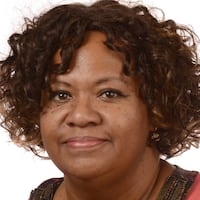Perhaps one of most difficult things to gauge with students is their mental well-being. Even without a worldwide medical crisis requiring schools to shut down suddenly, many factors can cause stress and anxiety in children. And having to look for those signs through a computer screen can make the challenge that much more difficult for school professionals.
So Rebekah Gilliard, school counselor for the lower grades at Greater Atlanta Christian School, provides a setting for children to focus on something besides negative or scary thoughts so they can speak freely.
The second largest private school in metro Atlanta breaks up the week with electives on Wednesdays. Students can take advantage of offerings from cooking classes to career advice from alumni.
Without calling it social-emotional learning, Gilliard engages kids age four through second grade in simple, but fun, activities to encourage conversation. The classes have become quite popular. She invited The Atlanta Journal-Constitution to sit in on a recent class with 50 students, where she demonstrated how to make a tornado in a bottle.
Related story: Teacher makes driveway a chalkboard of caring
Related story: Woddward graduates get surprise gifts
“It’s tricky for kids to be off their routines,” said Gilliard. “Social-emotional issues like trust, stress and anxiety aren’t easy to work through with large groups, so muting them through the Zoom platform helps keep the session from becoming chaotic with everyone trying to share at once.”
An important part of the classes is learning to identify feelings and accepting them.
“Through the modality of play, we help the students build social-emotional intelligence,” said Gilliard. “They fill their tool box with ways to cope.”
While the little hands are busy with the task, the minds can freely wander and allow the emotions to take over, she said.
The class has made slime and calm-down bottles — filled with substances of different weights and colors, such as glue, glitter and food coloring. You shake it up, mixing everything, and eventually they “calm down” into their previous spots.
“It’s amazing how soothing the calm-down bottles are,” said Gilliard. “I have some in my office and adults and children gravitate to them.”
Last year when Gov. Brian Kemp allocated funding for education, he earmarked money for mental health counselors. Kemp also created the Georgia Behavioral Health Reform and Innovation Commission to examine how the state can improve access to and delivery of behavioral health services.
“Mental health is an issue that impacts everyone in our state regardless of socio-economics, race, age or gender,” he said. “When we looked at our school security funding, we realized it wasn’t just locking people out of the school to keep kids safe, you’re having to deal with developmental and mental health issues inside the school system,” said Kemp.
Mental health professionals applauded the move. For decades they have advocated social-emotional well-being as a necessary focus for successful students.
George DuPaul, a child psychologist affiliated with the Society of Clinical Child and Adolescent Psychology and the American Psychology Association Interdivisional Coalition for Psychology in Schools and Education, agrees that finding creative ways to engage students can be effective in uncovering underlying issues.
“More importantly is what comes next,” he said. “Canvassing the need among students improves the challenges of identifying mental health issues.”
Although the sessions themselves aren’t therapy per se, allowing kids to express their feelings is a great start.
That’s Gilliard’s goal.
“We do deep breathing, meditation, prayer — different things to show the students that they can help themselves,” she said. “Some respond better to tactile stimulus. We explore a variety of options.”
Even though the school is Christian-based, families of all faiths make up the school community.
“We are unapologetic in teaching the love of Jesus and the spirituality that God loves us,” said Gilliard. “But these are good secular practices as well. At the early ages there’s a lack of understanding about theirselves and others. This is primarily a lesson in managing feelings.”
When to Seek Help for Your Child
As a parent, it can be hard to know when your child’s behavior is just a part of growing up or a sign of a bigger issue. There are several things a child and adolescent mental health professional will look at to determine if a child or teen’s behaviors are problematic:
• Is the behavior more intense than it should be?
• Does the duration of the behavior continue after the situation has passed?
• Is the behavior typical for his/her age level?
• Is the behavior upsetting to your child or other family members?
• Does the behavior prevent your child from interacting with friends or performing well in school?
• Is the behavior inappropriate to the situation?
• Does the behavior happen for no obvious reason?
• Does your child avoid important social, school or family activities because of the behavior?
All children are different, and even the most typical child or teen may engage in “problematic” behaviors from time to time, especially when they are tired, stressed or sick. However, if your child or teen repeatedly engages in inappropriate or unwanted behaviors, consider meeting with a mental health professional.
Source: The Society of Clinical Child and Adolescent Psychology
About the Author
Keep Reading
The Latest
Featured



